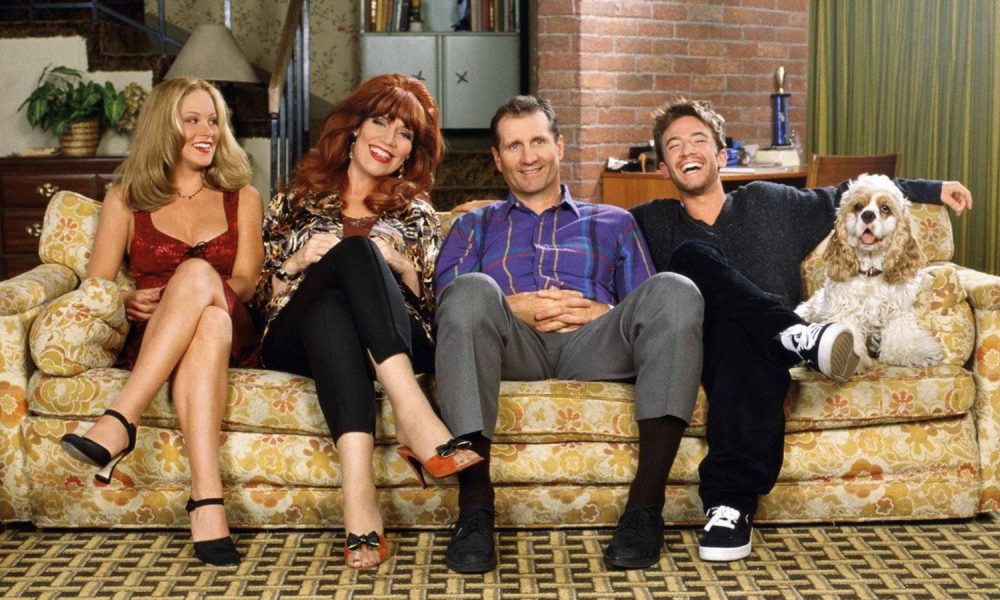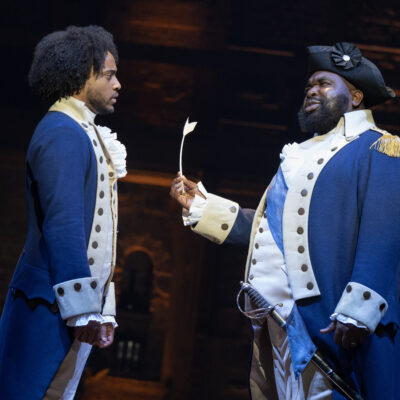Funny Then, Cringe Now: The issue with the Problematic Sitcom Guy
Sitcoms have been one of the most popular genres of TV shows for decades. Prominently popular between the 2000s and mid-2010s, the genre comforted people across the western world by providing humor and stability delivered in 20-minute, 20-episode seasons. The stability is what drove most people to them due to the promise that the characters and settings would always remain the same. For example, Leslie Knope’s enthusiasm for her job in Parks and Rec or Brooklyn Nine-Nine’s Gina Linetti’s lack thereof. But what about the presence of characters who are annoying or, frankly, problematic? In almost every sitcom I have watched, there is always that one guy whose job is to make crude remarks and act creepily towards women. These men may have been seen as funny when the shows originally came out, but what about years later, in a post-#MeToo world?
In the past year, I have gotten into sitcoms ranging from Parks and Rec to Modern Family to even Nickelodeon’s Victorious. To my surprise, the humor of the shows was appropriate and wholesome most of the time, but there were a few moments involving male characters that made me realize the injustices that still plague our world. These characters, Tom Haverford, Phil Dunphy, and Robbie Shapiro, may seem completely different, but they all have one thing in common: misogyny.
In his Medium article Revisiting Tom Haverford in a post-#MeToo World, Ian Irwin discusses the Parks and Recreation character who is the epitome of “that one guy.” But first, what is Parks and Recreation? Parks and Recreation, commonly referred to as Parks and Rec, is a sitcom that first aired in 2009 about the Parks and Recreation department of a small city in Indiana. The show stars Leslie Knope (Amy Poehler) along with several recurring characters, including her co-worker Tom Haverford (Aziz Ansari). Tom is an underachieving employee who has dreams of making it as an entrepreneur. Throughout the show he creates many business ideas, most of which go nowhere, which creates this “pathetic man” persona that the viewer is supposed to find funny. Sometimes, however, Tom gets a little too desperate.
One of Tom’s most recognizable traits is that he is a big fan of women. He frequents strip clubs and asks any woman he sees to go out with him. A significant depiction of his sexism is the plotline of what Ian Irwin describes as his “relentless pursuit” of Ann Perkins. Ann Perkins (Rashida Jones) becomes the best friend of Leslie Knope throughout the course of the show. As Irwin describes, Tom continually asks Ann to go out with him until she finally relents. The day after the date, Tom thinks that they have something going on while Ann shuts him down. He spends the rest of the episode continually pestering her until she finally agrees again.
The man-chasing-after-girl trope is something done countless times before and used to be seen as funny or romantic. When the word “no” can mean so much, it is important to recognize that some people are not interested in that way. Think about if Tom had even more confidence. What would happen in his pursuit of Ann then? Would he even take “no” for an answer? We must think of these things because if boys see this show they may think that it is okay to continuously ask women to go out with them to the point where they don’t listen to their response.
Another sitcom that aired around the same time is called Modern Family. Modern Family is about a realistic, close American extended family. It focuses on three families: Claire Dunphy’s (Julie Bowen), her brother Mitchell’s (Jesse Tyler Ferguson), and their father Jay’s (Ed O’Neill). Claire’s husband and the father of their three children is Phil Dunphy (Ty Burrell) is, from what I have seen, a fan-favorite. He is goofy and adores and supports his wife and children.
When I originally heard that he is a fan-favorite, I was surprised. From what I remember of Phil, he was a loving dad and husband most of the time. But there were other times where he would act creepily towards Claire’s step-mom, Jay’s wife, Gloria, played by Sofía Vergara (America’s Got Talent). Phil’s creepy actions toward Gloria begin even in the first episode of the show. . In the scene, Phil compliments Gloria on her tight dress. Gloria, who speaks with a strong Colombian accent, says “Thank you, Phil.” Him, thinking she said “feel,” begins to touch her hips. It takes his wife, Claire, slapping his hand away to get him to stop, telling him that she said “Phil” not “feel.”
Throughout the show, but primarily in the first few seasons, Phil continues to act this way towards Gloria. While it is portrayed as funny, if they were real people, I’m sure that the way Gloria feels about Phil and her responses after his actions would be much different. And again, what is the effect of actions like these on the screens of both boys and girls? For boys, they may grow up to think that it is okay to comment on women’s clothing and act unfaithful towards their partner. For girls, they might think that actions and comments such as Phil’s are normal. Altogether, something supposed to be funny, touching a woman without their consent, could turn into a much bigger issue if people think it is okay.
Lastly, a show that, before I watched it, I wouldn’t expect to be featured in this article: Victorious. Victorious was a popular kid’s show that aired in the early-2010s and is popular for being Ariana Grande’s big break playing Cat Valentine. It was created by Dan Schneider, the creator of many Nickelodeon shows who has been accused of sexual misconduct on set numerous times. The Nickelodeon show stars Victoria Justice (A Perfect Pairing) as Victoria “Tori” Vega, a Hollywood teenager who goes to a school specifically for the arts. She spends most of the time with her friends and classmates, including Jade West (Elizabeth Gillies), Andre Harris (Leon Harris III), and Grande’s character.
Another one of these friends is Robbie Shapiro (Matt Bennett), who is known for always having his puppet Rex with him. Robbie uses Rex to say all of his inside thoughts and tends to be very outspoken, which creates a juxtaposition between the two of them since Robbie is more socially awkward. (Robbie is very shy and socially awkward and uses Rex to say all of his inside thoughts) Personally, watching the show, I thought that Robbie as Rex was the creepy part of him due to how he would constantly comment on the appearance of women. However, a video from the YouTube channel Tronn about relationships in the show, that also went into how Robbie himself says weird things to women, made me realize he himself is actually creepy. The video includes a compilation of Robbie doing odd things, such as hiding in the bushes behind Tori’s house and taking out cardboard cutouts of Cat that he says he “brought from home.” Tronn also mentions a topic that Cat and Robbie discuss throughout the show that I have never caught on to. In his video, he showed a scene where Robbie is pushing an animal enclosure into a room and says to Cat “look what I got.” Cat, not seeing what he is talking about, puts her hands over her eyes and says,
“No, I don’t want to see that thing again. Put it away.”
It is never discussed what she is talking about here, nor the other times similar things have happened, leading viewers such as Tronn to suspect that Robbie may have sexually assaulted Cat in the past. This may be a reach, but saying Dan Schneider was the one behind the majority of the show, I wouldn’t be surprised. By giving hints at something like this, Schneider may be trying to normalize his own actions. A more obvious example of Robbie’s inappropriateness is when he blatantly stalks Tori by hiding in the bushes behind her house.
These actions (or assumed actions) that Robbie takes in Victorious are probably the most important actions in all of the sitcoms from this period. Mostly because the main viewers of them are children. John Hopkins Medicine says that “Many programs can show children violent behavior that you don’t want them to imitate,” such as the stalking or assumed sexual assault Robbie does. While Robbie is not shown to get to this level, stalkingawareness.org notes that “85% of attempted and 76% of completed homicide victims were stalked.” When characters in our TV shows, especially in kid’s TV shows, have stalking behaviors such as Robbie’s, it becomes normalized. Victorious viewers must remind themselves that this kind of behavior is a breach of privacy and should not be tolerated.
With the binging culture we have nowadays, a viewer of these TV shows may grow to accept the outdated actions in this show as normal, which can cause major problems to society. So when watching them, take the jokes with a grain of salt and recognition that they may have been less controversial than they are today. If you want to avoid the misogyny within them altogether but still want to enjoy the humor of sitcoms, consider sitcoms such as Brooklyn Nine-Nine, The Good Place, and Derry Girls.
Brooklyn Nine-Nine is especially important to discuss because it aired around the same time as Parks and Rec, Modern Family, and Victorious, in its treatment of women was much better. Throughout the show, the main character, Jake Peralta (Andy Samberg), was a symbol of non-toxic masculinity by always supporting his female colleagues and, despite being a humorous character, never joking about the treatment of women as other sitcoms felt was necessary. If sitcoms ever become as popular as they were in the 2000s and 2010s, TV show creators should get inspiration from Brooklyn Nine-Nine’s male characters and humor, not Parks and Rec, Modern Family, and Victorious.










